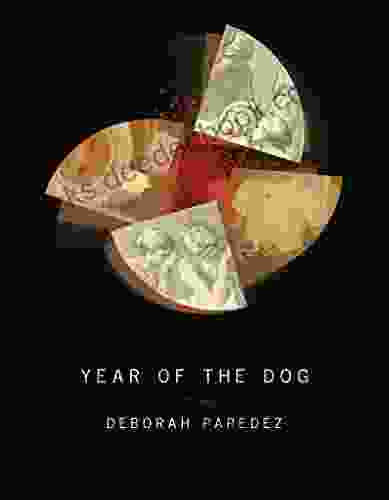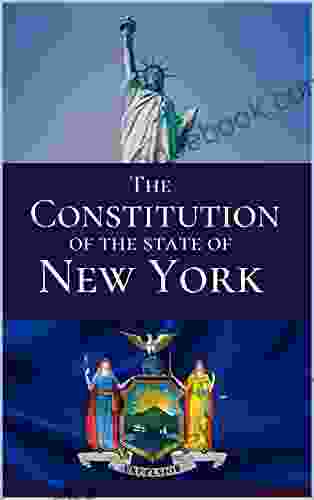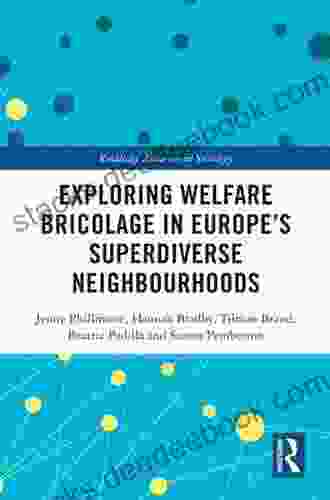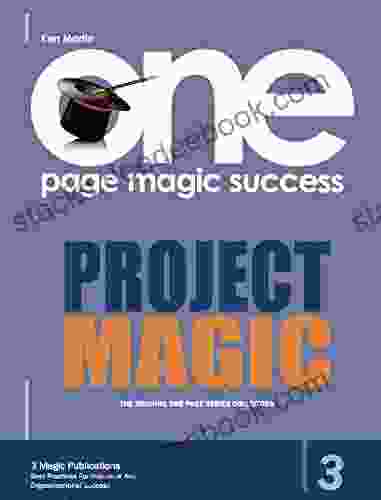Exploring Welfare Bricolage in Europe's Superdiverse Neighbourhoods

5 out of 5
| Language | : | English |
| File size | : | 2659 KB |
| Text-to-Speech | : | Enabled |
| Enhanced typesetting | : | Enabled |
| Word Wise | : | Enabled |
| Print length | : | 243 pages |
| Screen Reader | : | Supported |
| Item Weight | : | 7 ounces |
Abstract
This article explores the concept of welfare bricolage in superdiverse neighborhoods in Europe. Welfare bricolage refers to the ways in which individuals and families navigate complex welfare systems and create their own strategies to meet their needs. The article draws on qualitative research conducted in three superdiverse neighborhoods in London, Paris, and Amsterdam. The findings show that welfare bricolage is a common practice among migrants and refugees in these neighborhoods. They use a variety of strategies to access welfare benefits and services, including informal networks, community organizations, and online resources. The article argues that welfare bricolage is a creative and resourceful way for migrants and refugees to cope with the challenges of living in superdiverse neighborhoods. However, it also raises concerns about the sustainability of welfare bricolage and the need for more supportive welfare policies.
In recent years, there has been a growing interest in the concept of welfare bricolage. Welfare bricolage refers to the ways in which individuals and families navigate complex welfare systems and create their own strategies to meet their needs (Lister, 2004). This concept has been used to study a variety of populations, including low-income families, disabled people, and migrants. However, there has been relatively little research on welfare bricolage in superdiverse neighborhoods.
Superdiverse neighborhoods are characterized by their high levels of ethnic and cultural diversity. They are often home to large numbers of migrants and refugees from a variety of backgrounds. These neighborhoods can be challenging places to live, as residents often face discrimination, poverty, and a lack of access to essential services. In this context, welfare bricolage can be a vital strategy for survival.
This article explores the concept of welfare bricolage in superdiverse neighborhoods in Europe. The article draws on qualitative research conducted in three superdiverse neighborhoods in London, Paris, and Amsterdam. The findings show that welfare bricolage is a common practice among migrants and refugees in these neighborhoods. They use a variety of strategies to access welfare benefits and services, including informal networks, community organizations, and online resources. The article argues that welfare bricolage is a creative and resourceful way for migrants and refugees to cope with the challenges of living in superdiverse neighborhoods. However, it also raises concerns about the sustainability of welfare bricolage and the need for more supportive welfare policies.
Welfare Bricolage in Superdiverse Neighbourhoods
The concept of welfare bricolage was first developed by the sociologist Zygmunt Bauman. Bauman argued that in the late modern world, individuals are increasingly responsible for their own well-being. This is due to the decline of traditional forms of social solidarity, such as the family, the community, and the state. As a result, individuals are forced to become more resourceful and creative in order to meet their needs.
Welfare bricolage is a way of coping with the challenges of living in a complex and uncertain world. It involves drawing on a variety of resources to create a unique and personal welfare strategy. This can include accessing formal welfare benefits and services, as well as informal support from family, friends, and community organizations.
In superdiverse neighborhoods, welfare bricolage is a common practice among migrants and refugees. These individuals often face a number of challenges, including discrimination, poverty, and a lack of access to essential services. Welfare bricolage allows them to overcome these challenges and create a sense of stability and belonging in their new communities.
There are a number of different strategies that migrants and refugees use to access welfare benefits and services in superdiverse neighborhoods. These strategies include:
- Informal networks: Migrants and refugees often rely on informal networks to access welfare benefits and services. These networks can include family members, friends, and community organizations. They can provide information about available benefits and services, as well as help with the application process.
- Community organizations: Community organizations play an important role in providing welfare support to migrants and refugees in superdiverse neighborhoods. These organizations can provide a range of services, including legal advice, housing assistance, and job training. They can also help migrants and refugees to access formal welfare benefits and services.
- Online resources: Online resources can be a valuable source of information for migrants and refugees about welfare benefits and services. These resources can include government websites, non-profit organization websites, and social media groups. They can provide information about eligibility requirements, application procedures, and available benefits.
The strategies that migrants and refugees use to access welfare benefits and services in superdiverse neighborhoods vary depending on a number of factors, including their country of origin, their legal status, and their level of English proficiency. However, all of these strategies are examples of welfare bricolage. They represent the creative and resourceful ways that migrants and refugees are coping with the challenges of living in superdiverse neighborhoods.
The Sustainability of Welfare Bricolage
While welfare bricolage can be a successful strategy for migrants and refugees in superdiverse neighborhoods, it is important to consider its sustainability. Welfare bricolage is often a time-consuming and stressful process. It can also be difficult to maintain over the long term. This is especially true for migrants and refugees who are facing multiple challenges, such as poverty, discrimination, and a lack of access to essential services.
There are a number of factors that can affect the sustainability of welfare bricolage. These factors include:
- The availability of resources: The availability of resources is a key factor in the sustainability of welfare bricolage. Migrants and refugees who have access to a wide range of resources are more likely to be able to create a successful welfare strategy. This includes access to formal welfare benefits and services, as well as informal support from family, friends, and community organizations.
- The level of social support: The level of social support is another important factor in the sustainability of welfare bricolage. Migrants and refugees who have a strong social support network are more likely to be able to cope with the challenges of living in a superdiverse neighborhood. This support can provide them with emotional support, as well as practical help with accessing welfare benefits and services.
- The individual's resilience: The individual's resilience is also a key factor in the sustainability of welfare bricolage. Migrants and refugees who are resilient are more likely to be able to cope with the challenges of living in a superdiverse neighborhood and to create a successful welfare strategy.
If these factors are not in place, welfare bricolage can become unsustainable. This can lead to a number of negative consequences for migrants and refugees, including poverty, homelessness, and social isolation.
Welfare bricolage is a common practice among migrants and refugees in superdiverse neighborhoods in Europe. It is a creative and resourceful way for them to cope with the challenges of living in these neighborhoods. However, it is important to consider the sustainability of welfare bricolage. There are a number of factors that can affect the sustainability of welfare bricolage, including the availability of resources, the level of social support, and the individual's resilience. If these factors are not in place, welfare bricolage can become unsustainable and lead to a number of negative consequences for migrants and refugees.
There are a number of ways to support the sustainability of welfare bricolage. These include:
- Increasing the availability of resources: Governments and non-profit organizations can increase the availability of resources for migrants and refugees in superdiverse neighborhoods. This includes providing access to formal welfare benefits and services, as well as informal support from family, friends, and community organizations.
- Strengthening social support networks: Governments and non-profit organizations can also strengthen social support networks for migrants and refugees in superdiverse neighborhoods. This can be done through a variety of programs and initiatives, such as community outreach programs, peer support groups, and mentoring programs.
- Building resilience: Governments and non-profit organizations can also build resilience among migrants and refugees in superdiverse neighborhoods. This can be done through a variety of programs and initiatives, such as trauma-informed care programs, life skills training programs, and leadership development programs.
5 out of 5
| Language | : | English |
| File size | : | 2659 KB |
| Text-to-Speech | : | Enabled |
| Enhanced typesetting | : | Enabled |
| Word Wise | : | Enabled |
| Print length | : | 243 pages |
| Screen Reader | : | Supported |
| Item Weight | : | 7 ounces |
Do you want to contribute by writing guest posts on this blog?
Please contact us and send us a resume of previous articles that you have written.
 Chapter
Chapter Story
Story Genre
Genre Library
Library Paperback
Paperback E-book
E-book Magazine
Magazine Newspaper
Newspaper Paragraph
Paragraph Glossary
Glossary Bibliography
Bibliography Preface
Preface Synopsis
Synopsis Annotation
Annotation Codex
Codex Bestseller
Bestseller Classics
Classics Library card
Library card Biography
Biography Memoir
Memoir Thesaurus
Thesaurus Character
Character Resolution
Resolution Catalog
Catalog Card Catalog
Card Catalog Borrowing
Borrowing Stacks
Stacks Periodicals
Periodicals Study
Study Scholarly
Scholarly Lending
Lending Reserve
Reserve Journals
Journals Reading Room
Reading Room Rare Books
Rare Books Special Collections
Special Collections Interlibrary
Interlibrary Study Group
Study Group Dissertation
Dissertation Awards
Awards Sonya Hartnett
Sonya Hartnett Heather Mackey
Heather Mackey Joshua C Kendall
Joshua C Kendall Charlene Phillips
Charlene Phillips Jeff Pelletier
Jeff Pelletier Dennis Kelsall
Dennis Kelsall Harvey Yoder
Harvey Yoder Adrian Streather
Adrian Streather Christopher Hauke
Christopher Hauke Sabella O Abidde
Sabella O Abidde Stephen Coonts
Stephen Coonts Pranay Patil
Pranay Patil Ian C Woodward
Ian C Woodward Amanda Haas
Amanda Haas Michael Sack Elmaleh
Michael Sack Elmaleh Adrian Trendall
Adrian Trendall Connie Kerbs
Connie Kerbs Richard D Handy
Richard D Handy Donna Douglas
Donna Douglas Margaret H Bonham
Margaret H Bonham
Light bulbAdvertise smarter! Our strategic ad space ensures maximum exposure. Reserve your spot today!

 David PetersonEscape into the Comforting Embrace of Harlequin Heartwarming May 2024 Box...
David PetersonEscape into the Comforting Embrace of Harlequin Heartwarming May 2024 Box... Bret MitchellFollow ·13k
Bret MitchellFollow ·13k Ivan CoxFollow ·7.6k
Ivan CoxFollow ·7.6k Gabriel MistralFollow ·7.9k
Gabriel MistralFollow ·7.9k Isaias BlairFollow ·18.2k
Isaias BlairFollow ·18.2k Walt WhitmanFollow ·14.9k
Walt WhitmanFollow ·14.9k Robert ReedFollow ·12.8k
Robert ReedFollow ·12.8k Jamie BlairFollow ·9.8k
Jamie BlairFollow ·9.8k Chance FosterFollow ·18.9k
Chance FosterFollow ·18.9k

 Amir Simmons
Amir SimmonsMore Zeal Than Discretion: A Closer Look at the Risks and...
Enthusiasm is often seen as a positive...

 Wayne Carter
Wayne CarterYear of the Dog: American Poets Continuum 178
Year of the Dog is a...

 David Foster Wallace
David Foster WallaceThe Constitution of the State of New York: A...
The Constitution of the...

 Harvey Bell
Harvey BellSmall Cetaceans of Japan: Exploitation and Biology
Small cetaceans, including...

 Blake Bell
Blake BellEffortless Elegance: A Comprehensive Guide to Captivating...
In the realm of crocheting,...
5 out of 5
| Language | : | English |
| File size | : | 2659 KB |
| Text-to-Speech | : | Enabled |
| Enhanced typesetting | : | Enabled |
| Word Wise | : | Enabled |
| Print length | : | 243 pages |
| Screen Reader | : | Supported |
| Item Weight | : | 7 ounces |












